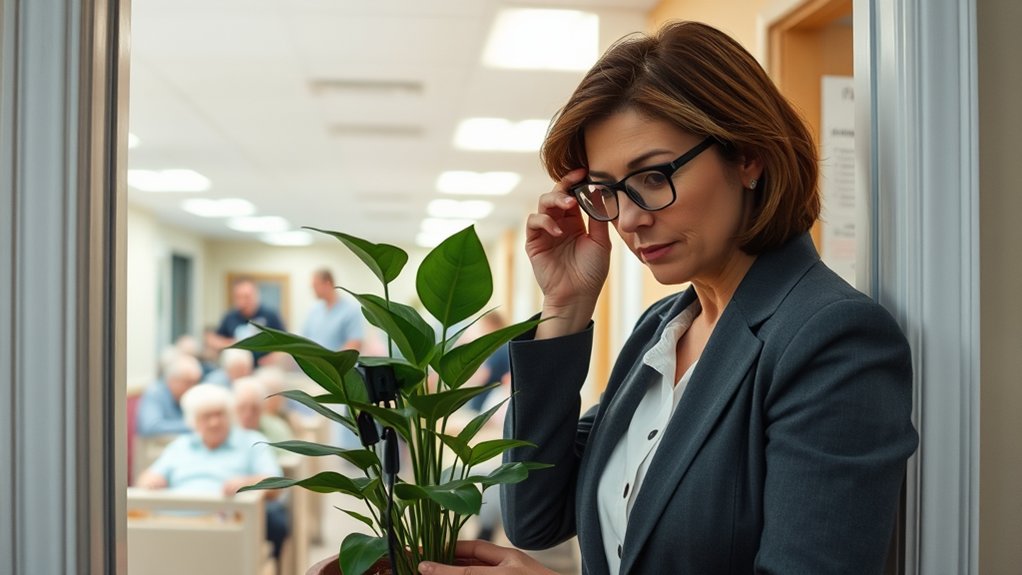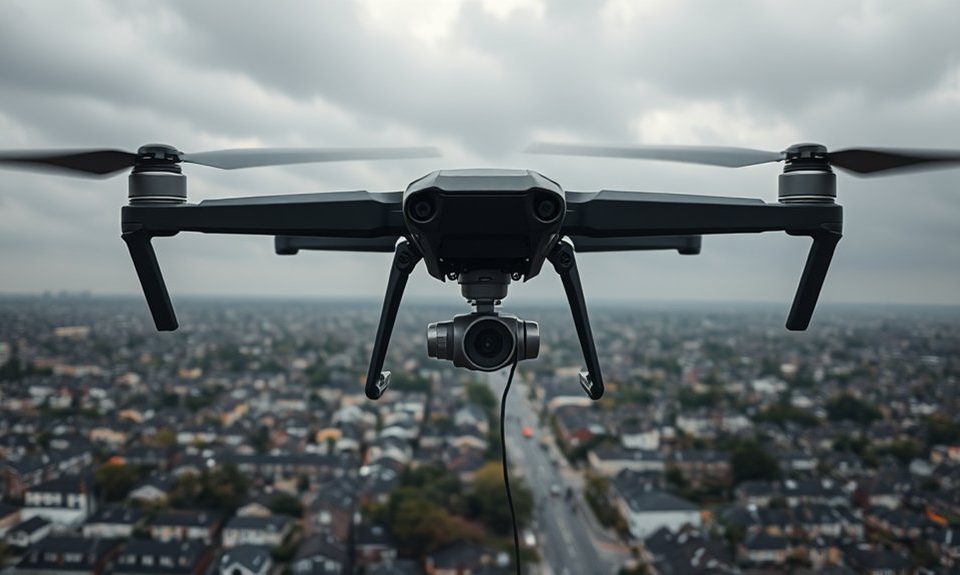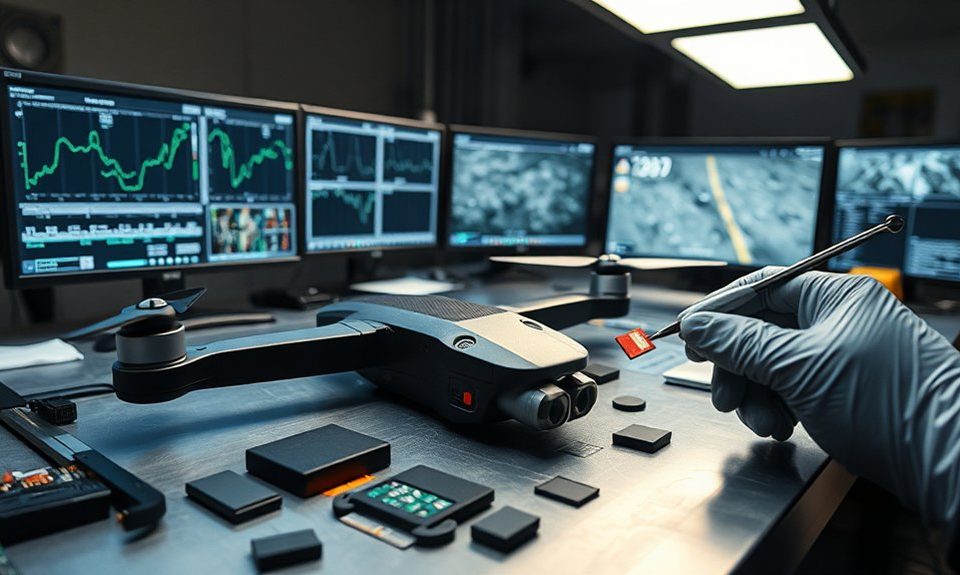Private investigators utilize legal surveillance methods and advanced technology to gather evidence in senior care facilities. They conduct exterior monitoring, review public records, and interview willing staff members while maintaining compliance with state regulations. Digital forensics tools analyze electronic records, while specialized software tracks staff activities. Professional witness networks provide expert testimony and corroboration. Meticulous documentation guarantees evidence reliability and admissibility. Understanding these systematic approaches reveals the extensive scope of senior care investigations.
Key Takeaways
- Investigators conduct exterior surveillance using vehicle-mounted cameras and recording devices positioned in public areas near care facilities.
- Digital forensics tools analyze electronic records and staff logs while specialized software tracks medication administration and staff movements.
- Professional witness networks are developed through healthcare conferences and associations to provide expert testimony and evidence corroboration.
- Meticulous documentation systems maintain time-stamped logs, photographs, and witness statements following strict chain-of-custody protocols.
- Investigators collaborate with healthcare teams and families while respecting privacy regulations to gather comprehensive evidence of care conditions.
Legal Methods of Surveillance in Senior Care Facilities

Private investigators employ several legally sanctioned surveillance methods when investigating senior care facilities. While adhering to privacy laws, they conduct exterior monitoring of facilities using vehicles equipped with cameras and recording devices positioned in public spaces. They may also employ covert recording equipment that complies with state regulations.
Investigators must balance ethics considerations with their mandate to uncover potential abuse or negligence. Common legal methods include photographing facility conditions from public areas, reviewing publicly available records, and interviewing willing staff members during breaks. Some investigators utilize permitted visitor access to make observations, though they must maintain transparency about their purpose when required by law. They also coordinate with families who have legal authority to install monitoring devices in residents’ rooms. Like other sensitive cases such as child custody disputes, investigations require extensive review of evidence and interviews with individuals to document care quality.
Advanced Technology Tools for Evidence Collection
Building upon traditional surveillance methods, modern private investigators now employ sophisticated technological tools to strengthen their evidence collection in senior care investigations. Advanced surveillance technology enables investigators to thoroughly document potential misconduct while maintaining strict compliance with privacy regulations.
- Digital forensics tools extract and analyze electronic records, including staff communication logs, medical documentation, and facility security footage.
- Remote monitoring systems with high-resolution cameras and motion sensors provide real-time oversight while maintaining resident dignity and privacy.
- Specialized software applications track staff movements, document medication administration, and verify care delivery schedules.
These technological solutions enhance investigators’ ability to gather conclusive evidence while minimizing disruption to facility operations and resident care routines. The integration of these tools guarantees thorough documentation of both standard practices and potential violations.
Investigators frequently employ RF signal detectors to identify any unauthorized surveillance devices that could compromise sensitive patient information or facility security.
Building Professional Witness Networks
Successful senior care investigations rely heavily on cultivating networks of professional witnesses who can provide expert testimony and corroborating evidence. Private investigators develop relationships with healthcare professionals, social workers, and industry specialists who understand senior care standards and can identify potential violations.
Effective networking strategies include attending healthcare conferences, joining professional associations, and maintaining contact with retired facility staff. These connections often provide valuable insights into facility operations and industry practices. Investigators carefully verify witness credibility through background checks, professional licensing verification, and examination of past testimony experience. They also maintain detailed records of each witness’s qualifications and areas of expertise to guarantee their testimony will hold up under scrutiny during legal proceedings. This professional network becomes an invaluable resource for building strong cases of elder abuse or negligence. Just as in child custody battles, independent verification through professional witnesses helps document harmful conditions that may otherwise go unnoticed.
Documentation Techniques and Record-Keeping

The meticulous documentation of evidence forms the cornerstone of senior care investigations. Private investigators employ systematic approaches to record and preserve all findings, ensuring reliability and admissibility in potential legal proceedings. Through careful interview techniques and thorough report analysis, investigators maintain detailed chronological records of their findings.
- Digital documentation systems track witness statements, photographic evidence, and surveillance recordings while maintaining strict chain-of-custody protocols
- Time-stamped logs record all investigative activities, including facility visits, staff interviews, and document reviews
- Secure cloud-based storage solutions protect sensitive information while allowing authorized access to case files and supporting documentation
These documentation methods create an unimpeachable record of elder care conditions, staff behavior, and facility compliance, providing essential evidence for families and legal professionals seeking to protect vulnerable seniors. With specialized equipment, investigators can effectively capture and preserve crucial evidence while maintaining the highest standards of investigative integrity.
Working With Healthcare Teams and Family Members
Effective collaboration between private investigators and healthcare teams requires clear communication protocols and established boundaries. When gathering evidence in senior care cases, investigators must maintain professional relationships with medical staff while respecting patient privacy regulations and facility policies.
Private investigators employ collaborative strategies to work alongside family members who can provide valuable context about the senior’s routines, preferences, and historical care patterns. These interpersonal communication channels help investigators identify potential signs of neglect or abuse more accurately. Investigators often serve as intermediaries between concerned relatives and healthcare providers, facilitating information exchange within legal parameters.
Regular updates to family members about investigation progress must be balanced against confidentiality requirements and the integrity of ongoing evidence collection. This approach guarantees all stakeholders remain informed while maintaining professional standards. The ethical standards commitment ensures investigators handle sensitive healthcare information with the utmost discretion and professionalism.
Frequently Asked Questions
How Much Does a Senior Care Investigation Typically Cost?
Senior care investigations typically range from $1,500 to $5,000, with investigation budget variations based on cost factors including surveillance duration, location complexity, and evidence gathering requirements needed.
Can Private Investigators Share Evidence With Law Enforcement Agencies?
Private investigators can engage in evidence sharing with law enforcement through proper legal channels. Professional collaboration requires following protocols and maintaining chain of custody when submitting documented findings to authorities.
What Qualifications Should I Look for When Hiring a Senior Care Investigator?
Professional investigators should meet a qualifications checklist including relevant certifications, years of elder care investigation experience, background screening expertise, insurance coverage, and documented success handling sensitive family cases.
How Long Does an Average Senior Care Investigation Take to Complete?
Investigation timelines for senior care cases typically range from 2-4 weeks, though complex situations may extend to 8 weeks. Typical durations depend on evidence needed and facility access limitations.
Do Private Investigators Need Special Certifications for Healthcare Facility Investigations?
Professional investigators typically need state-specific certification requirements, specialized investigator training in healthcare regulations, and may require additional credentials when conducting investigations within medical or long-term care facilities.
Conclusion
Private investigators employ a multifaceted approach to gather senior care evidence, combining traditional surveillance methods with modern technology and professional networks. Through meticulous documentation, legal observation techniques, and collaboration with healthcare providers and families, investigators build thorough cases that protect vulnerable seniors. This systematic process guarantees that any collected evidence meets legal standards while maintaining ethical considerations in sensitive care environments.





